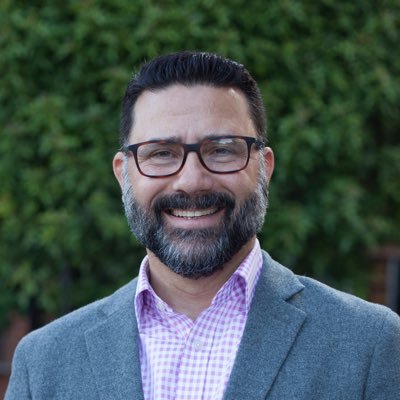
By Juan Sanchez
As pastors, we’re forced to decide whom we partner with on mission. We’re expected to lead our church to budget for mission. We’re looked upon to mobilize our church for mission. But what is this mission? How we understand and define mission matters for local church ministry.
As I am preaching through Acts, I’ve been helped by seeing what the apostle Paul actually did when he was “on mission.” Let me share four tasks of mission, as I see them, from Paul’s first missionary journey in Acts 13-14. We might even say, these are four tasks missionaries do “on mission.”
To be clear, I’m not arguing these are the only tasks missionaries do, but, for me, they’ve been four tasks that help bring clarity to the mission of the church for our people.
Missionaries Plant Churches.
After being called by the Holy Spirit and sent out by the church in Antioch, Paul traveled with Barnabas, establishing churches through the preaching of the gospel (Acts 13:16-33). Wherever Paul went, he “spoke in such a way that a great number of both Jews and Greeks believed” (Acts 14:1), eventually, appointing elders in every church (Acts 14:23).
Now, planting churches is hard work. It’s hard, primarily, because Satan is opposed to Christ and the spread of his gospel (Acts 13:10). Still, regardless of the opposition, Paul “continued preaching the gospel” (Acts 14:7).
As we think about mission, we want to prioritize establishing new churches because that is the pattern we see in the New Testament. Jesus is building his church through the preaching of the gospel, attended by the Holy Spirit, resulting in new churches established.
For our church, this helps us prioritize mission work and mission partners that work to plant new churches through gospel proclamation, but mission is about more than just starting churches, and missionaries do more than just plant churches.
Missionaries Strengthen Churches.
When they had reached as far as they were to go in their first missionary journey, Paul and Barnabas retraced their steps on the way home to strengthen the churches they had established (Acts 14:21-22). How? They encouraged “them to continue in the faith” and reminded them “that through many tribulations we must enter the kingdom of God” (Acts 14:22).
Paul was keenly aware of the reality that “it has been granted to [all Christians] that for the sake of Christ [we] should not only believe in him but also suffer for his sake” (Philippians 1:29). As you can imagine, new churches face unique challenges; and with Satanic attacks, new Christians in new churches need encouragement to continue in the faith.
As we think about mission, we not only want to establish new churches, we also want to maintain relationships with those new churches we plant so that we might strengthen them. Imagine the joy and fruitfulness of establishing churches and maintaining long-term relationships with the believers in those different congregations.
You get to see them grow in the grace and knowledge of Christ. You get to encourage them. You get to walk with them through the hard times. You get to build up, equip, and bless those pastors. What a joy! However, what is it that churches need more than missionaries?
Missionaries Recognize Indigenous Leaders.
More than missionaries, more than our short-term trips, churches need to recognize faithful indigenous leaders. It’s not accidental that Paul and Barnabas “appointed elders for [the churches] in every town” (Acts 14:23).
These leaders are the people who will shepherd the new churches 365 days out of the year. They are the ones who understand, better than we do, the particular needs of their people.
As we think about mission, we want to make sure those we are helping don’t become dependent on us. We want to equip and empower local, indigenous leaders because the future of the church in whatever country or people group you’re engaged with, is not in our hands. It’s in the hands of the native Christians living in those lands, as they submit to the Lord and work in the power of the Spirit.
Missionaries Entrust Churches to the Lord.
“With prayer and fasting,” Paul and Barnabas “committed [the believers and their churches] to the Lord in whom they had believed” (Acts 14:23). We may grow frustrated as to how little we can do with our mission partnerships, but the bottom line is that, ultimately, we must entrust these new Christians and their new churches to the Lord in whom they have believed.
As we think about mission, we can rest in the sovereignty of the one who made a promise to build his church, knowing that the gates of hell will not prevail against it. Therefore, we are free to entrust new Christians and new churches to the Lord.
There may be much debate concerning the mission of the church, but reading Acts reminds us that Jesus is building his church as faithful messengers proclaim the gospel and establish new churches. These new churches will need encouragement, but more than they need us; they need faithful pastors who will shepherd them through the daily troubles they will face.
Thankfully, the mission of the church is not in our hands; it’s in the Lord’s, reminding us that we can entrust new believers and new churches to his care.
In our church, we’ve found that thinking through mission in these ways brings great clarity to those whom we partner with, how we budget for this task, and how we mobilize for mission. I pray this may be helpful for your church as well.

Juan Sanchez
Juan is husband to Jeanine, father to five daughters, senior pastor of High Pointe Baptist Church, Austin, Texas, and author of Seven Dangers Facing Your Church.










